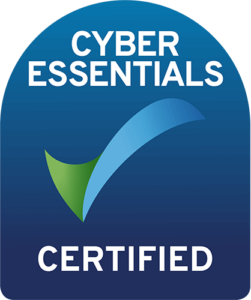Cybercrime and Conveyancing Fraud
Conveyancing clients are increasingly being targeted with sophisticated scams because fraudsters know large amounts of money change hands during property transactions.
Here at LPL, we take cyber security very seriously and we are committed to tackling conveyancing cybercrime in any way we can in order to protect our clients. Without wishing to alarm you, it is important that we make you aware of the risks of conveyancing cybercrime.
Common types of fraud
Bogus law firm
Fraudsters set up fake firms or fake branch offices of genuine firms, and have emails or website that clone the genuine firm.
Email scams
Law firms are subject to ‘Spear Phishing’ quite often. This is when a client is targeted by a fraudster pretending to be from a trustworthy organisation in order to steal that person’s personal data or their money.
Phone scams known as vishing (voice phishing)
Here scammers will use ‘Social Engineering’ techniques to get hold of your information by phone or use fake text messages containing links.
Phone number spoofing
(Also known as Payment Diversion Fraud).
Cyber Essentials
We are committed to protecting our clients from cybercrime and we have worked hard to gain certification from the Cyber Essentials scheme.
Cyber Essentials is a government-backed, industry supported scheme, which is designed to help organisations protect themselves against common cyber attacks.
In order to qualify for certification, Cyber Essentials has a list of strict criteria that we need to comply with on an ongoing basis. We are confident in the security of our own systems, but we are unable to control the security of your personal devices.
LPL Email Systems
Email is an essential part of our business systems and enables us to complete the work for you in a timely manner.
However, we know that emails can sometimes be intercepted and used illegally by fraudsters, and therefore, we have gone to extensive lengths to ensure that our email servers are as secure and robust as possible.
Our computer systems include antivirus software and other safeguards, designed to identify, and prevent any fraudulent interceptions.
Our internal email systems are secure but once emails leave our systems, they are no longer secure, and you should treat email correspondence with caution.
Please be extremely vigilant and cautious when opening emails, attachments or links and when responding to any requests for your bank details.

Cybercrime and Conveyancing Fraud Warning! 033 305 5189
Never transfer money without calling us first to check our bank details.
Our Bank Account Details
As a result of increased risk posed by cyber fraud and especially those relating to bank account details, please note that LPL’s bank account details will NEVER change during the course of a transaction, and we will NEVER email our bank details. Do not trust any email that tells you we have changed our bank details. Contact us as a matter of urgency.
If you receive an email from us with our full bank details, we strongly recommend that you assume it is NOT genuine.
We do not want your money to fall into the wrong hands! We will not accept responsibility if you transfer money into an incorrect bank account.
Our account details will never change. They are sent to you by secure PDF and we strongly advise you to call and check them with one of our team prior to transferring any money.
If you have any concerns as to the validity of the bank details provided to you, please check the details by telephoning the caseworker who is dealing with your matter or a member of our Client Services team.
If an email has been hacked, any telephone numbers in the email might also have been changed, so we recommend that you also verify any telephone number you use before calling us – the best place to verify our telephone number is using the “Find a Solicitor” service on the Law Society website or https://www.lawyerchecker.co.uk/ can be used to verify solicitors’ accounts.
Bank account checker tools on websites cannot be considered safe, even if on a conveyancer’s own website. The problem is that with websites, your browser downloads the code which then translates it to the webpage so its possible to amend your version of a webpage.
Your Bank Account Details
We will never directly ask you for your bank details. It is always best to check with us if you are concerned about suspicious activity.
We will ask you to complete your bank details on the client questionnaire which is sent to you with the Initial Letter and supporting documents. This is a secure, encrypted document however, we will ask you for copies of a corresponding bank statement and verify the account before transferring any funds.
Phone number spoofing to defraud home buyers and sellers
Phone number spoofing is where highly sophisticated criminals use software so that when phone calls are received, the number comes up different to the one they are calling from and may show as that of a firm of solicitors. It’s also known as Payment Diversion Fraud and criminals will then pretend to be solicitors and ask for payments to be made to a bank account that they control, which can result in large losses for home buyers/sellers.
In addition, house moving is often a very busy and stressful time, which means house buyers/sellers may be more susceptible to falling victim to Payment Diversion Fraud.
Victims can lose hundreds of thousands of pounds, and may never get their money back.
If a house buyer/seller receives a telephone call from somebody saying they are from LPL, in which they are provided bank details to which payments or transfers should be made, they should follow this advice:
- wait 5 minutes (criminals will sometimes stay on the line once the person thinks they have hung up) or use a different phone;
- call back LPL on a trusted number, such as 0333 3051 012or any number listed on the LPL website contact us page, to check the details before making any payments or transfers;
- if any doubt do not make the payment or transfer (criminals will often try and rush house buyers/sellers by saying it is urgent or must be done immediately)
NECC have produced a flyer for conveyancing clients warning of the risk of payment diversion fraud, especially in relation to property transactions.
Cyber safety tips
Install anti-virus software on all devices and ensure your firewall is enabled.
Do not share passwords and change them frequently.
Do not open suspicious emails or links.
Never give out banking passwords – your bank will never ask for these.
Be wary with what you share on social media.
Always verify payments over the phone on a known number for the firm.
If you are being pushed to proceed very quickly, be careful, fraudsters often use this tactic, emails are used and corners are cut.
Do not post any updates regarding the progress of your transaction on social media –
this is how some fraudsters identify when to send scam emails requesting your money.
Queries and Concerns about
Cybercrime and Conveyancing Fraud
If there are any issues you want to discuss in relation to any of the information provided in this guide, please contact the caseworker dealing with your matter.



